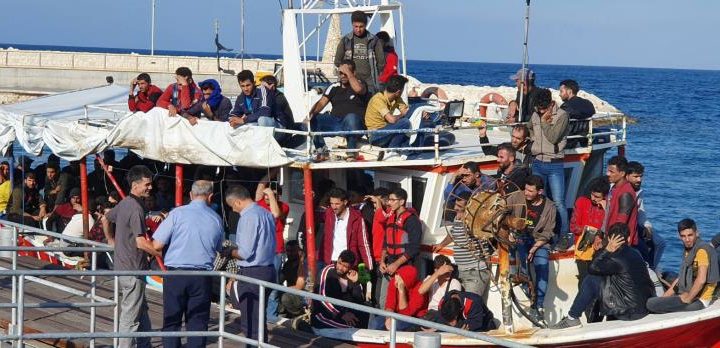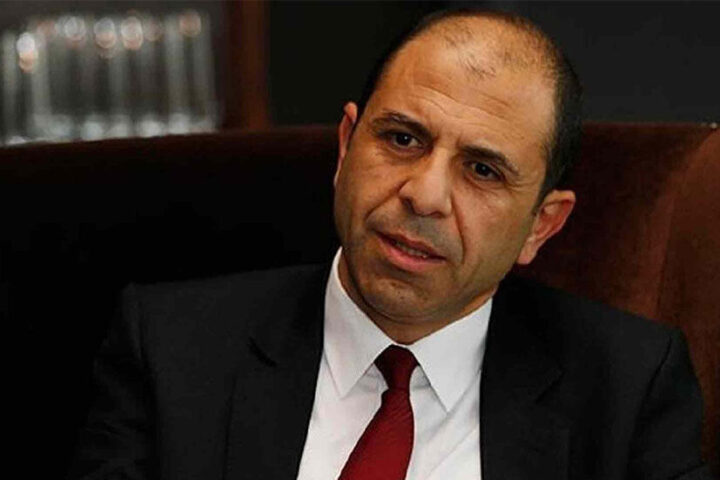Interior Minister Constantinos Ioannou said the government plans to get Greek Cypriot refugees from the 1974 Turkish invasion out of dangerous housing estates, as warnings flood in that some 43 apartment buildings were unfit.
The plan was drawn up following a meeting with Nikos Kettiros, Chairman of the House Refugees Committee, Larnaca Mayor Andreas Vyras who chairs the Union of Municipalities, and representatives from the Cyprus Refugee Union and the technical chamber ETEK, advising the government.
Talking on Politis Radio, Ioannou reassured refugee tenants they would receive the support of the authorities.
The Cyprus government will provide a grant to affected tenants to hire civil engineers who will evaluate whether their buildings can be repaired or will need to be knocked down and rebuilt.
“The plan is to provide holistic solutions to the issue with refugee housing estates, and will cover some 348 apartment buildings,” said Ioannou.
The minister explained that during the time the building is being repaired or rebuilt, tenants will receive grants to cover rent in alternative locations according to the size of the apartment they are currently occupying.
“Indicatively, people living in a one-bedroom apartment will be given around €600 a month so they can rent elsewhere in the meantime,” said the minister.
If a building needs to be pulled down and rebuilt, then tenants will be called to chip in, without the minister revealing how much they would have to pay.
He argued that at the end of the day, they will have a brand new apartment.
The minister also said that where the owner of a refugee apartment does not wish to contribute towards reconstructing the building, they will be offered compensation in exchange for the title deed of the apartment they are currently occupying.
Compensation
“Compensations will be close to the value estimated by the Land Registry,” said Ioannou.
Earlier in the week, the mayors of five Nicosia municipalities said that Cyprus was “on the verge of a national disaster” as more than 40 buildings used by hundreds of Greek Cypriot refugees are in danger of collapsing.
In a joint statement, the mayors of Latsia, Nicosia, Strovolos, Lakatamia and Anglandjia, called on President Nikos Christodoulides and Interior Minister Constantinos Ioannou to intervene, as hundreds of lives could be at stake.
The mayors said that the “long-standing ineptitude of the State, to offer a holistic solution to the management of the issue in question, may become criminal, in the event of natural disasters, just as in the case of the recent earthquakes in Turkey and Syria”.
The 7.8 magnitude earthquake that struck the two neighbouring countries on February 6 this year, resulted in a number of poorly maintained and constructed buildings to collapse, claiming more than 50,000 lives.
The five mayors also called on the Department of Urban Planning and Housing to disclose the findings of a 2020 study regarding the static adequacy of apartment buildings in the government estates.
According to reports, the survey reveals that immediate steps need to be taken to improve the condition of 43 apartment buildings used by refugees, deemed unsuitable and dangerous.
As the mayors note, the survey has languished in the corridors of the Department of Urban Planning and Housing for almost three years, with no action taken.
They noted that the majority of these buildings were build some 45 years ago, following the Turkish invasion of 1974, without observing the current seismic codes.
They were also built in a hurry, as there was an urgent need to house the refugees who were forced to abandon their homes in the Turkish occupied north of the island.
“They were victims of this invasion, the majority of them are now elderly citizens, trapped in dangerous apartments which are in danger of collapsing and who have nowhere else to go”, they added.
The mayors’ announcement comes as the House Refugees Committee also called for immediate steps to be taken to improve the condition of 43 apartment buildings used by refugees, which were deemed unsuitable and dangerous.
Below limits
The chairman of the parliamentary committee and AKEL MP Nikos Kettiros, told Astra Radio that the static adequacy of the buildings is below the limits provided by the legislation and determined by the technical chamber ETEK. As he explained, the static efficiency must be at 25 newtons (unit of measurement) and in some refugee apartment buildings it is at 10, that is, less than half.
Kettiros said that the House Refugees Committee has written to the Director of the Department of Town Planning, the Ministry of the Interior, the Attorney General, the Auditor General, the Associations of Municipalities and Communities and the Cyprus Refugee Union.
The AKEL MP noted that, “the Committee will be holding each one of the competent authorities accountable for any mishaps in the future, should they ignore the House’s warnings and calls”.
The MP said that the committee is giving the Department of Town Planning time to table the report before the House within one week.










